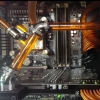Is running a RAID 5 array in my personal rig viable?
-
Featured Topics
-
Topics
-
1
-
0
-
alexfic ·
Posted in New Builds and Planning3 -
Pirateben ·
Posted in General Discussion1 -
frozensun ·
Posted in Storage Devices1 -
3
-
ammar666 ·
Posted in Troubleshooting4 -
CurtisLee14 ·
Posted in CPUs, Motherboards, and Memory6 -
Sparky862 ·
Posted in Storage Devices5 -
5
-


.png.255947720031a641abdac78e663b681c.png)




.thumb.jpg.ab6821c090888206ddcf98bb04736c47.jpg)










Create an account or sign in to comment
You need to be a member in order to leave a comment
Create an account
Sign up for a new account in our community. It's easy!
Register a new accountSign in
Already have an account? Sign in here.
Sign In Now